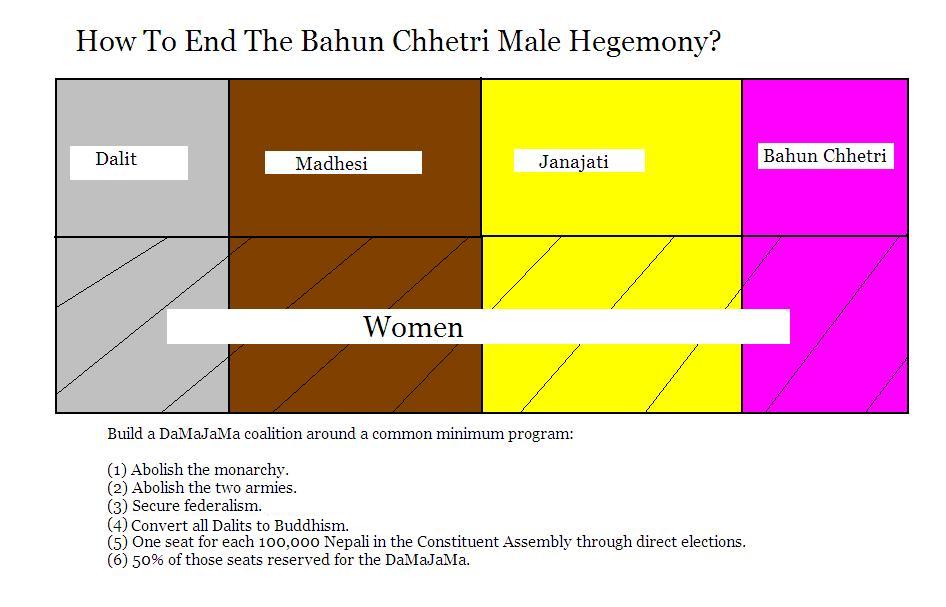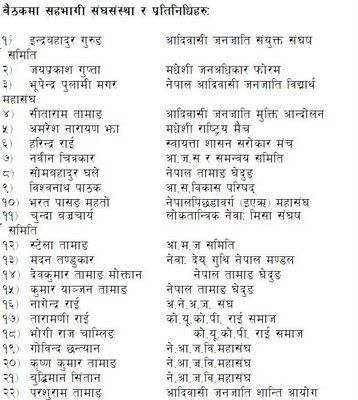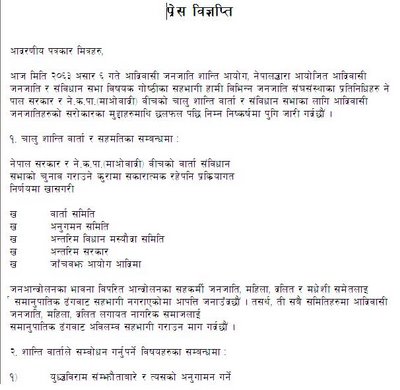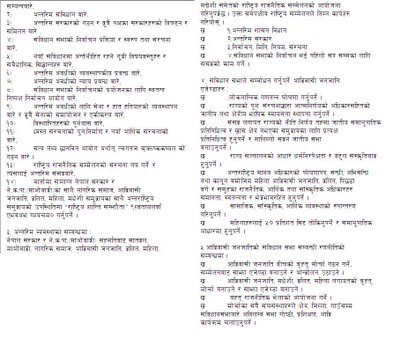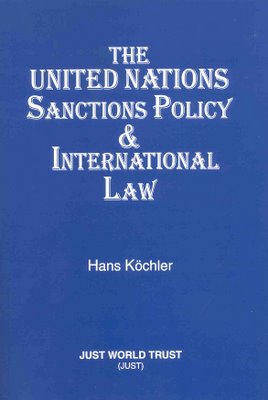
Learn from Nepal, Left tells naxalitesThe eight party alliance has to agree on one thing about Nepal's future more than anything else. The April Revolution is one for world history. I believe the April Revolution has given Nepal an opportunity to shoot for a cutting edge democracy such that the April Revolution can stand in the same league as the October Revolution in Russia, the French Revolution, the American Revolution, and the Indian Struggle For Independence. But whether or not we will qualify will depend on if or not we can give an original twist to the concept of democracy in our next constitution. I think we should shoot for a democracy where parties do not get to raise funds, instead they get state funds in direct proportion to the number of votes they earn, and they keep all their book keeping online.Hindu Left parties have asked naxal groups in the country to reconsider their political strategy, pointing to Nepal Maoists joining the mainstream. ..... The CPI (M), the CPI and the All-India Forward Bloc said the historic accord between the Maoists and the Seven-Party Alliance in Nepal would have a direct impact on the Maoist movement in South Asia, in general, and India in particular. ........ CPI general secretary A. B. Bardhan said "this is a historic accord ... will have far-reaching repercussions not only in our sub-continent but also over the Marxist extremist thinking all over the world." ........ It would have a "great impact" on the polity in the entire Indian sub-continent as there had been talks of a "revolutionary corridor" from Kashmir to Vishakapatnam encompassing all the naxalite movements and a section of the LTTE. ....... Some sections within Pakistan, he said, had been thinking such a corridor would help the Maoists in their country to bring about a revolutionary change. "But now the accord in Nepal will have ideological repercussions on the extremist elements everywhere." ....... CPI national secretary Shamim Faizi said by joining parliamentary democracy the Maoists had refuted the basic concept of Maoism that the power came through the barrel of the gun........ certain elements in the Indian Government, which propped up groups such as the `Salwa Judum' (Self-Defence Groups) for armed confrontation with the naxalites, also had to rethink their strategy.......
The Indian mainstream communists played a huge role in helping forge the eight party alliance in Nepal. I give them much credit, and I thank them. But they are in too much of a hurry to suggest they have done enough to invite the Indian Maoists into the Indian mainstream.
Proposed Republican Constitution 2006
They now have to work with the eight party alliance in Nepal to design a democracy where parties do not get to raise funds, instead they get state funds in direct proportion to the number of votes they earn. And then they have to engineer the same in India. That is what you will have to do to mainstream the Indian Maoists.
The April Revolution in Nepal was something magical. None of the members of the eight party alliance saw it coming, although each has rushed to take credit for all of it. The credit goes to the people, not to the parties. The parties have never been that effective before to take credit for such an outpouring. Nothing like this has happened in any country in my living memory.
A second revolution will also take place. But that will not take place in the streets. That will take place at the ballot box. That will take place in the constituent assembly once it takes shape. But take place it will. You ain't seen nothing yet.
Nepal is to lead the launch of the Asian Century.
After you turn India into a democracy where parties do not get to raise funds, instead they get state funds in direct proportion to the number of votes they earn, China is going to come under immense pressure to turn itself into a multi-party state, one with federalism, such that Tibet has its own parliament, religious freedom is guaranteed, and you can see Taiwan and China become one, kind of like West and East Germany. The Chinese Communist Party will likely still stick around as the largest party, and that is fine. The transition could be smooth. Perhaps Prachanda and Baburam should teach some theory to the Chinese communists, and make them accept the multi-party framework.
Nepal has to work to export its April Revolution into every country that is not yet a democracy, most of them in Africa. I think we have to start with Zimbabwe. Mugabe is an asshole.
Mugabe Chor, Desh Chhor
Revolution is an export item.
Democracy Spreading Mechanism
I invite and welcome the mainstream Indian communists to keep playing a key role in Nepal. Their role so far has been commendable. But they also have much left to do, both in Nepal and in India.
On The Web
Communism - Wikipedia, the free encyclopedia
Anti-communism - Wikipedia, the free encyclopedia
The Principles of Communism
Museum of Communism
Informal Communist Discussion
The failure of Balkan Communism and the causes of the Revolutions ...
Communism
Fall of Communism
For Communism
communism
Communism - Wikiquote
Life after Communism: West goes East - NI 366 - Contents
Victims of Communism Memorial Foundation: Honor the Victims of ...
The Electronic Passport to Russia and Communism
Communism
Communism
The Black Book of Communism
Communism - MSN Encarta
Marxist Origins of Communism
MS' Ballmer: Linux is communism | The Register
Technorati Tag: communism
communism. The Columbia Encyclopedia, Sixth Edition. 2001-05
Holocausts of Communism Test
Communism in Washington State - History and Memory Project
BBC NEWS | Special Report | 1999 | 09/99 | China 50 years of ...
The Authentic History Center:
MURDER BY COMMUNISM
Political Parties > Communist in the Yahoo! Directory
Libertarian Communism
Council Communism
Fall of Communism
communism (OED definition)
Amazon.com: The Black Book of Communism: Crimes, Terror ...
Amazon.com Books: Political Doctrines / Communism
Community Communism
Mission - Museum of Communism
AIM25: Thesaurus-assisted search
An End to Communism: The Recent History of Russia
Index of /
communism.co.uk
Anti-Communist Action
How the Pope 'Defeated Communism' (washingtonpost.com)
Misconceptions
Liberals, Anti-Communism, and McCarthyism
Manifesto of Libertarian Communism
Why Communism Kills
Council Communism by Paul Mattick 1939
The Red Mafia: A Legacy of Communism
Islam could be new communism, Pell tells US audience - World - www ...
The Black Book of Communism: Crimes, Terror, Repression [Book Review]
Definition of communism - Merriam-Webster Online Dictionary
Communist Goals - 1963 Congressional Record
Jew Watch - Jewish Mind Control - Communism
Communism on Postal Stamps
Communism
BBC NEWS | Special Report | 1999 | 09/99 | China 50 years of communism
In The News
Govt compromising on wheat quality: CPI(M) Financial Express, India
Left short-circuits UPA plan to ease labour laws
EC issues notice to 2 CPI(M) MPs Daily News & Analysis, India
Left not against private investment: CPI-M DailyIndia.com, NY
CPI(M) activist killed in J&K Hindu, India
CPI (M) to take up cudgels for farmers against govt Hindustan Times, India
Three CPI(M) supporters shot dead Hindu, India
Prices: CPI (M), SP to continue protest Hindu, India
CPI (M) trying to create 'third alternative': Karat Hindu, India -
CPI(M) activist hacked to death in W Bengal Hindustan Times, India
Visitors
Page views yesterday 213
| 1. | 11:26 | Mantra Online, India | |
| 2. | 11:29 | McGill University, Canada | |
| 3. | 11:39 | Bharat Online, New Delhi, India | |
| 4. | 11:58 | Calgary Board of Education, Calgary, Canada |
| 6. | 12:02 | Satyam Infoway Limited, India |
| 12:34 | Road Runner, New York, United States |
| 12:58 | Rensselaer Polytechnic Institute, Troy, United States |
| 20. | 13:39 | Bharti Enterprises, India | |
| 21. | 13:44 | Videsh Sanchar Nigam Ltd, India | |
| 22. | 13:59 | AstralTelecom, Romania | |
| 23. | 14:04 | Bharti Enterprises, India |
| 15:10 | Telekom Malaysia Berhad, Malaysia |
| 38. | 15:59 | Shaw Communications Inc., Canada | |
| 39. | 16:03 | Legend Internet Limited, United Kingdom |
| 16:09 | Swipnet, Sweden |
